Secure Payment Data with PCI DSS Compliance
Expert PCI DSS implementation services that protect cardholder data while enabling seamless payment processing. Navigate complex payment security requirements with proven expertise.

Essential for Payment Security
PCI DSS compliance protects your customers and your business from payment card fraud
Trusted by market leading technology companies


















Workstreet was critical to the success of our audit, handling the evidence collection, interviews, and generally managing the auditor, saving our team the burden and time. The result was a faster audit with less findings compared to the previous year.



Our team has been really happy with the speed and responsiveness from you all. Several of our AEs have mentioned being extremely impressed relative to what they saw at their past companies. Excited to keep working together here.


Workstreet has been a true partner. They embedded security into our daily workflow, took on the heavy lifting, and enabled us to move faster by unblocking security reviews without draining our team.






All of them (security reviews) have been super smooth for us to get through because of the work that you guys did for us. We've had no hiccups, no issues, passed everything. And it's been great.



Workstreet helps us move a lot faster. I save time, our engineers save time, and we’re able to get back to customers quicker, which helps us with faster sales cycles. Our engineers and I have saved 100+ work hours since we started with Workstreet.



Begin Your PCI DSS Compliance Journey
Connect with our PCI experts to assess your payment environment and create a compliance roadmap
Thank you!
One of our trust engineers will be in touch shortly.
.avif)
Systematic PCI DSS Implementation
From scoping to validation, we ensure comprehensive payment security compliance


PCI Scoping & Assessment
.svg)
Security Controls Implementation
.svg)
Testing & Validation
.svg)
Compliance Reporting

Navigate the 12 PCI requirements with expert guidance and practical implementation steps.
The Complete PCI DSS Implementation Guide
Master payment security with comprehensive PCI DSS guidance for merchants and service providers

BitPart AI
BitPart AI is a cutting-edge artificial intelligence company developing innovative solutions for business applications. At their current growth stage, BitPart AI recognized the need to establish strong security credentials to support their market expansion and build trust with enterprise customers. With their technical team focused on product development, they needed expert guidance to navigate the complex compliance landscape efficiently and implement appropriate security measures for their specific business model.

Perceptis.ai
Perceptis.ai is an innovative artificial intelligence company developing advanced perception and analysis solutions for business applications. As they expanded their operations and pursued enterprise clients, Perceptis.ai recognized the need to establish robust security practices that would protect their intellectual property and build trust with customers. With their technical team focused on AI development, they required expert guidance to understand and implement security best practices efficiently.
PCI DSS FAQs
Common questions about PCI DSS compliance
PCI DSS has four merchant levels and four service provider levels based on transaction volume:
Merchant Levels:
- Level 1: 6M+ transactions annually (requires QSA audit)
- Level 2-4: Fewer transactions (can use Self-Assessment Questionnaires)
Service Provider Levels:
- Level 1: 300,000+ transactions annually (requires audit)
- Level 2-4: Fewer transactions (SAQ-D with penetration testing)
Your level determines validation requirements—from simple questionnaires to comprehensive audits with penetration testing.
Yes, if you process or transmit cardholder data—even without storing it. PCI DSS applies to any organization that accepts, processes, or transmits credit card information, including:
- Payment processing through your application
- Transmitting payment data to third parties
- Temporary cardholder data in your systems
- Using payment processors (you still need to validate your environment)
Even with a "pass-through" model, you'll likely need SAQ-A or SAQ-A-EP compliance.
The requirements are organized into six control objectives:
Build and Maintain Secure Networks:
1.) Install and maintain firewall configuration
2.) Change vendor-supplied defaults for passwords/security
Protect Cardholder Data:
3.) Protect stored cardholder data
4.) Encrypt cardholder data transmission
Maintain Vulnerability Management:
5.) Use and update anti-virus software
6.) Develop and maintain secure systems
Implement Strong Access Control:
7.) Restrict access by business need-to-know
8.) Assign unique IDs to each person
9.) Restrict physical access to cardholder data
Regularly Monitor and Test Networks:
10.) Track and monitor all access
11.) Regularly test security systems
Maintain Information Security Policy:
12.) Maintain information security policy
Annual validation is required, with ongoing requirements:
- Quarterly vulnerability scans by Approved Scanning Vendor
- Continuous security monitoring
- Immediate remediation of critical vulnerabilities
The validation method varies by level:
- Level 1: QSA audit + penetration testing
- Level 2-4: Self-Assessment Questionnaire
- Service Providers Level 1: Audit + penetration testing
- Service Providers Level 2-4: SAQ-D + penetration testing
PCI Security Standards Council:
- Creates and maintains standards
- Manages QSA and ASV qualification programs
- Develops technical guidelines
Payment Brands (Visa, Mastercard, etc.):
- Enforce compliance requirements
- Set fines for non-compliance
- Manage validation and reporting
In practice: PCI SSC sets rules, payment brands enforce them.
Secure Your Payment Processing Today
Don't risk payment card breaches. Get comprehensive PCI compliance that protects your business and customers.








